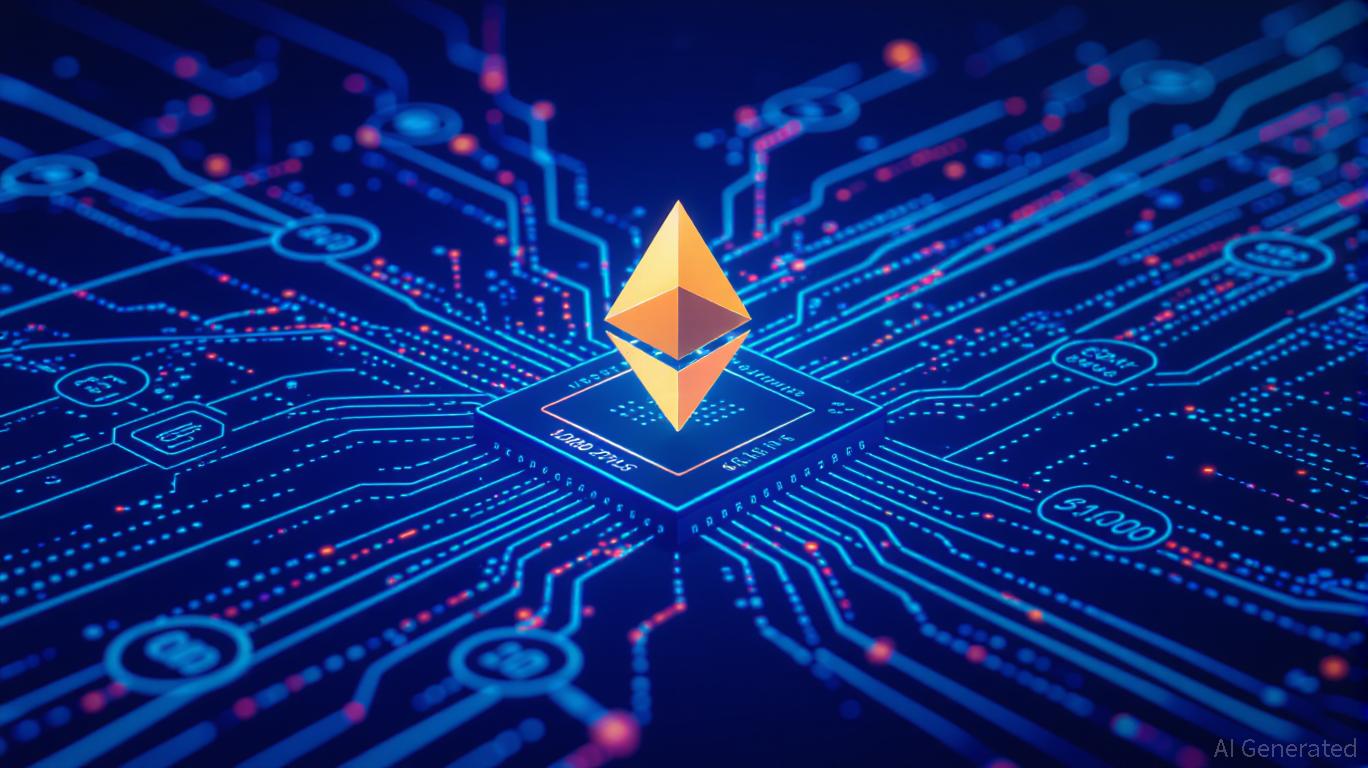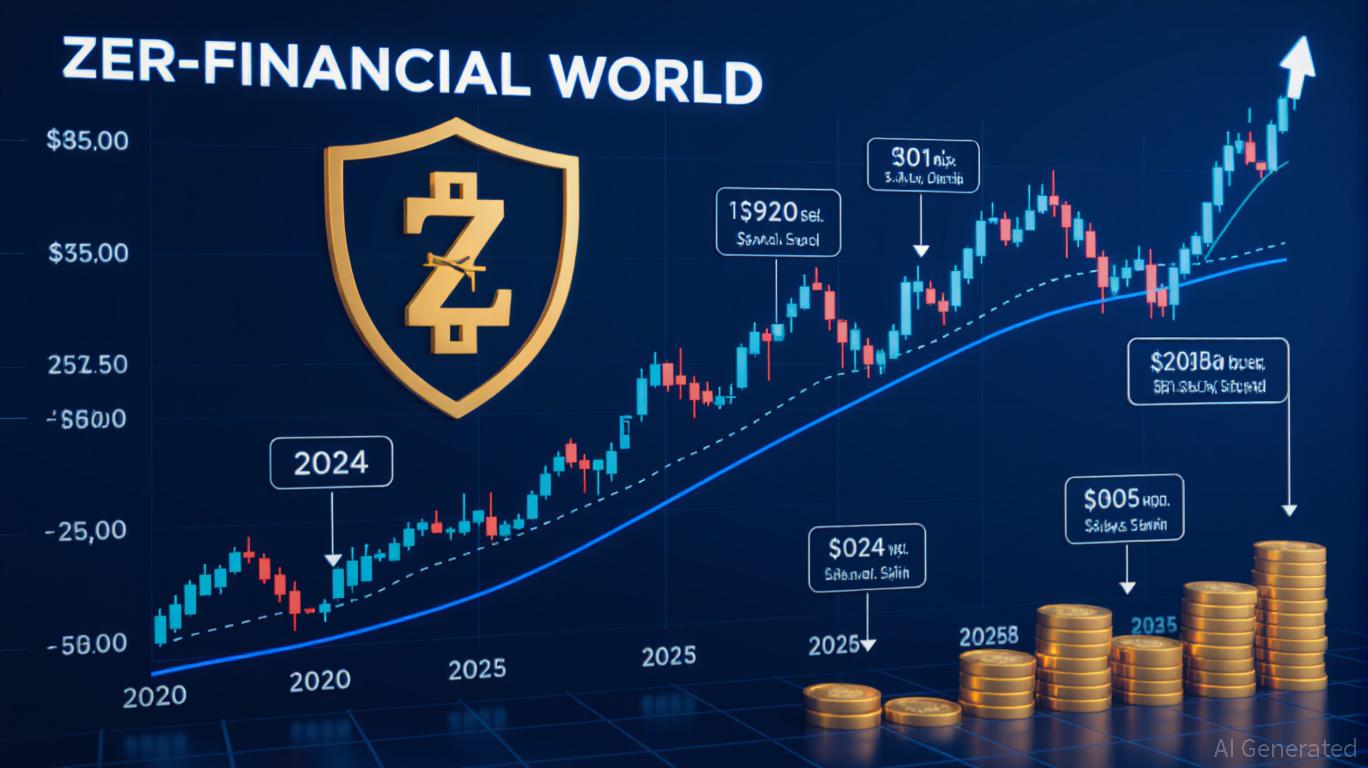U.S. Pursues Five-Year Prison Terms in Cryptocurrency Privacy Lawsuit, Challenging Developer Responsibility
- U.S. prosecutors seek 5-year sentences for Samourai Wallet co-founders over $237M crypto laundering via privacy tools. - Case highlights DOJ's strategy to hold crypto platform operators liable for criminal user activity, mirroring Tornado Cash legal battle. - Defense argues for reduced sentences citing cooperation, while prosecutors emphasize deterrence against privacy-focused financial innovation. - Outcome could set precedent for developer liability in DeFi, balancing privacy rights with regulatory com
U.S. authorities are seeking five-year prison terms for Keonne Rodriguez and William Lonergan Hill, the co-founders of Samourai Wallet—a cryptocurrency privacy platform accused of laundering more than $237 million in illegal proceeds from 2015 to 2024. Both men admitted guilt in July to running an unlicensed money transmitting business and are scheduled for sentencing on November 6 and 7, 2025, as reported in a
The charges claim that Samourai Wallet, which promoted itself as a privacy-centric

Defense lawyers, on the other hand, have called the prosecution’s sentencing request “excessively severe.” Rodriguez’s legal team asked for a sentence of one year and one day, while Hill’s attorneys requested credit for time already served, emphasizing that both men cooperated with investigators and accepted responsibility, according to
This case has been likened to the ongoing proceedings against Tornado Cash, a decentralized crypto mixer whose co-founder, Roman Storm, was found guilty in August of operating an unlicensed money transmitting business. Storm was acquitted of related money laundering and sanctions violations, a decision that drew criticism from privacy advocates who argue that developers should not be blamed for how users utilize their creations. The Samourai and Tornado Cash cases together illustrate the Justice Department’s approach of holding platform operators responsible for crimes committed through their services, even if users act independently.
Legal analysts caution that the results of these cases could shape how U.S. regulators interpret liability within decentralized finance (DeFi). Government filings indicate a belief that developers can be held accountable for criminal use of their platforms if they maintain operational control or influence through marketing—a stance that could discourage innovation in privacy-focused crypto projects. Samourai, which ceased operations after its founders’ arrests in April 2024, had advertised its coin-mixing as a method to “conceal transaction trails,” a claim now cited by prosecutors as proof of deliberate concealment.
The upcoming sentencing hearings in November will determine whether the court upholds the prosecution’s full recommendation or opts for the Probation Office’s lesser sentence. If the court sides with the government, it could signal stricter regulation for crypto privacy tools; a lighter sentence might encourage continued development in the field. As the digital asset industry navigates the balance between privacy and regulatory demands, these cases highlight the increasing friction between technological progress and government oversight.
Disclaimer: The content of this article solely reflects the author's opinion and does not represent the platform in any capacity. This article is not intended to serve as a reference for making investment decisions.
You may also like
Bitcoin News Update: Bitcoin’s Drop to $100k Highlights Short-Term Anxiety Versus Enduring Confidence from Institutions
- Bitcoin fell below $100,000 in Nov 2025 amid geopolitical tensions and profit-taking, wiping $1.3B in crypto liquidations. - Technical indicators showed bearish momentum, with whales selling 38.4k BTC while retail traders bought 415 BTC. - Michael Saylor predicted $150k BTC by year-end, citing institutional adoption, as investors shifted to altcoins like AlphaPepe. - Miners like MARA doubled Bitcoin reserves in Q3, but stocks dipped amid macroeconomic uncertainties and volatile price swings.

Vitalik Buterin Backs ZKsync: Driving Layer 2 Expansion and Unlocking Investment Opportunities
- Vitalik Buterin's endorsement of ZKsync's Atlas upgrade validates its technical innovation, boosting institutional interest and investor confidence. - The upgrade enables direct Ethereum liquidity access, achieving 15,000+ TPS and near-zero fees, positioning ZKsync as a key Layer 2 infrastructure. - Buterin's backing triggered a 120% token price surge and $600M market cap, highlighting its potential to dominate Ethereum's scaling solutions. - ZKsync's tokenomics overhaul prioritizes buybacks and staking

Zuckerberg: *The Social Network* Captured My Mannerisms, But Not My Life
- Mark Zuckerberg praised *The Social Network* for accurately replicating his Harvard-era casual style, including owned T-shirts and fleece jackets. - He criticized the film's narrative, calling its portrayal of his Facebook motivations and fabricated romantic subplot "completely wrong." - Zuckerberg highlighted Hollywood's struggle to grasp tech entrepreneurship's intrinsic appeal, emphasizing real-world innovation vs. dramatization. - Despite narrative disagreements, he bought the film's iconic "Ardsley

Zcash Halving Scheduled for November 2025: Triggering Market Fluctuations and Attracting Speculative Investments
- Zcash's November 2025 halving will cut miner rewards by 50%, mirroring Bitcoin's deflationary model and tightening supply. - Historical data shows post-halving price surges, with Zcash's price rising 472% since October 2025 amid $137M institutional inflows. - Privacy-centric features (30% shielded supply) and speculative demand drive volatility, but regulatory risks and competition pose challenges. - Market dynamics highlight tension between scarcity-driven optimism and macroeconomic uncertainties affect
